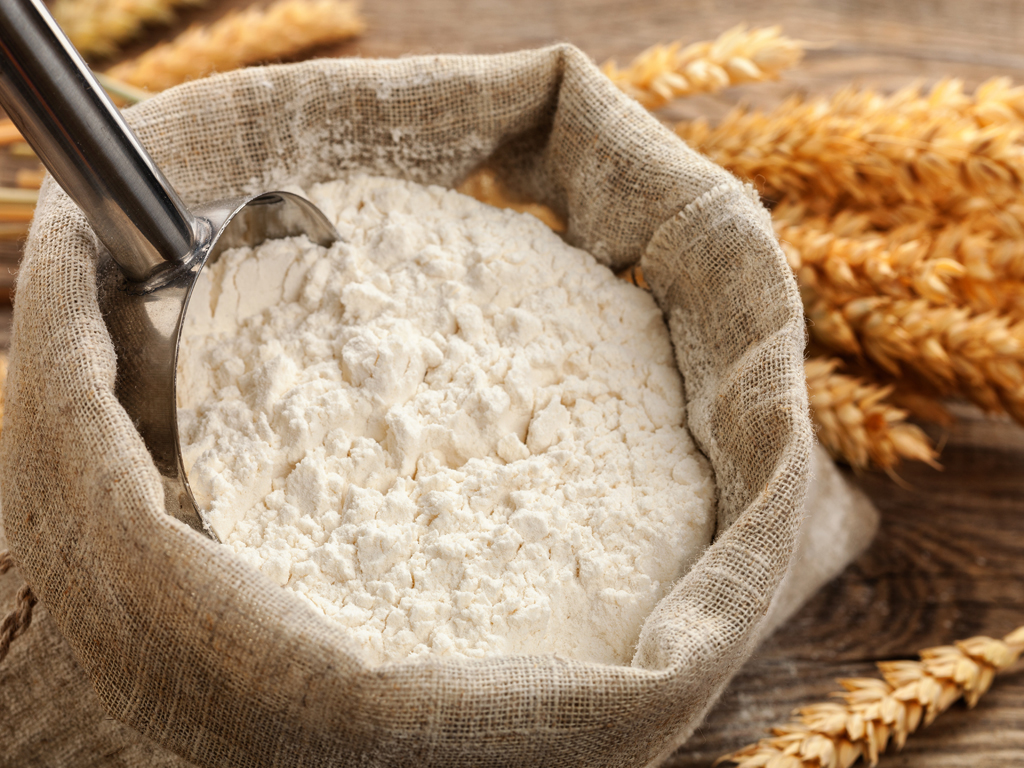Exporters: Ban on Export Unnecessary, What to Do with the Flour, There’s a Surplus of Wheat Too
Source: Beta
 Wednesday, 09.03.2022.
Wednesday, 09.03.2022.
 15:33
15:33
 Wednesday, 09.03.2022.
Wednesday, 09.03.2022.
 15:33
15:33
(Photo: Timmary/shutterstock.com)

The “Zitounija” Association of Mill, Baking and Dough Industry of Serbia today sent a request to the Ministry of Agriculture and the Chamber of Commerce of Serbia, requesting for flour to be exempt from the ban on export.
– The export of flour should in no way be banned. There’s plenty of it, we don’t know what to do with it. We want this decision not to be made, and if it has been made, to be revoked immediately – said the president of this association, Zdravko Sajatovic.
He added that the wheat stock should be inspected and, if it were estimated that it is insufficient, that the export should be banned, but that the implementation of quotas should be considered, because the harvest was to start four months later.
Sajatovic said that the reasons for the presence of an enormous flour stock were multiple and that the consumption had been dropping for 15 years, with the reduction of the population, and that the exports had been dropping for several years.
– As the state got involved in the regulation of the market and capped the prices of flour types 400 and 500 at the level of November 2021, an absurd situation has occurred where there are now no small flour packages of one kilogram in store chains, because the prices are capped, whereas the prices of the same flour in packages of 25 kilograms are not, so the bakers bought all the quantities of small packages – Sajatovic explained.
He said that flour could be sold at 49-50 dinars per kilogram in the foreign market, that it was paid for in advance and that large amounts had already been contracted.
He added that 100,000 tons of flour could be exported without jeopardizing the local supply in any way.
He pointed out that only 84,000 tons of flour were exported between July 2021 and the present moment and that, in the economic year of 2016-2017, a record export of 252,000 tons was realized.
Advisor to the company CHF, which is the biggest exporter of grains from Serbia, Miroslav Debeljacki, said that there was a sufficient stock of wheat and the there should be no ban on the export of this agricultural product.
He added that, if such a decision were necessary, companies should be allowed to realize the already signed agreements.
The president of Serbia, Aleksandar Vucic, announced that, on Thursday, the decision would be made to ban the export of certain foodstuffs and that “we will take care that big exporters not lose large amounts of money”, and Debeljacki estimated that it was unacceptable for a decision on the ban on exports to be adopted “overnight”.
Hungary has adopted the decision that the export of wheat requires a request to be filed and approved, for which it has been warned by the EU.
Zoran Bogetic, a professor at the Faculty of Economics in Belgrade, said that the political and economic situation was confusing and that some cautionary measures were necessary.
– The question is what would happen in Ukraine and Russia, which are among the biggest grain countries in the world. When making a decision to ban the export of wheat and corn, the entire political situation regarding the agriculture, the supply crisis and the crisis with the prices of mineral fertilizers and the overall stock of Serbia should be taken into consideration – Bogetic said.
Companies:
Poslovno udruženje Žitounija
 Ekonomski fakultet Beograd
Ekonomski fakultet Beograd
 Privredna komora Srbije
Privredna komora Srbije
 Ministarstvo poljoprivrede, šumarstva i vodoprivrede Republike Srbije
Ministarstvo poljoprivrede, šumarstva i vodoprivrede Republike Srbije
Tags:
Žitounija
CHF
CCIS
Zoran Bogetić
Zdravko Šajatović
Miroslav Debeljački
grains
flour
ban on exports
surplus
stock
exporters
reactions
Comments
Your comment
Naš izbor
Most Important News
Full information is available only to commercial users-subscribers and it is necessary to log in.
Follow the news, tenders, grants, legal regulations and reports on our portal.
Registracija na eKapiji vam omogućava pristup potpunim informacijama i dnevnom biltenu
Naš dnevni ekonomski bilten će stizati na vašu mejl adresu krajem svakog radnog dana. Bilteni su personalizovani prema interesovanjima svakog korisnika zasebno,
uz konsultacije sa našim ekspertima.


 Izdanje Srbija
Izdanje Srbija Serbische Ausgabe
Serbische Ausgabe Izdanje BiH
Izdanje BiH Izdanje Crna Gora
Izdanje Crna Gora


 News
News






